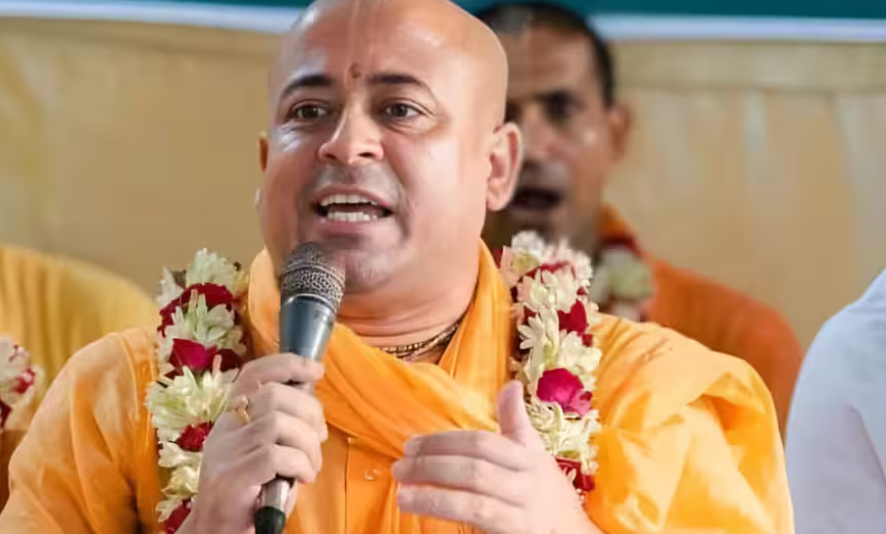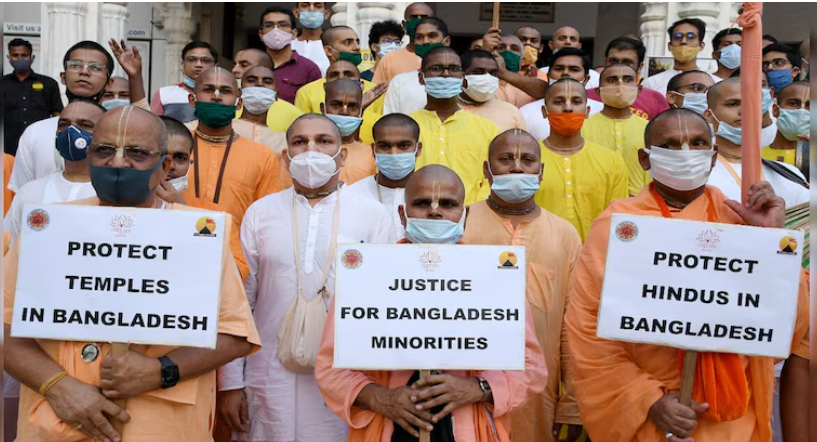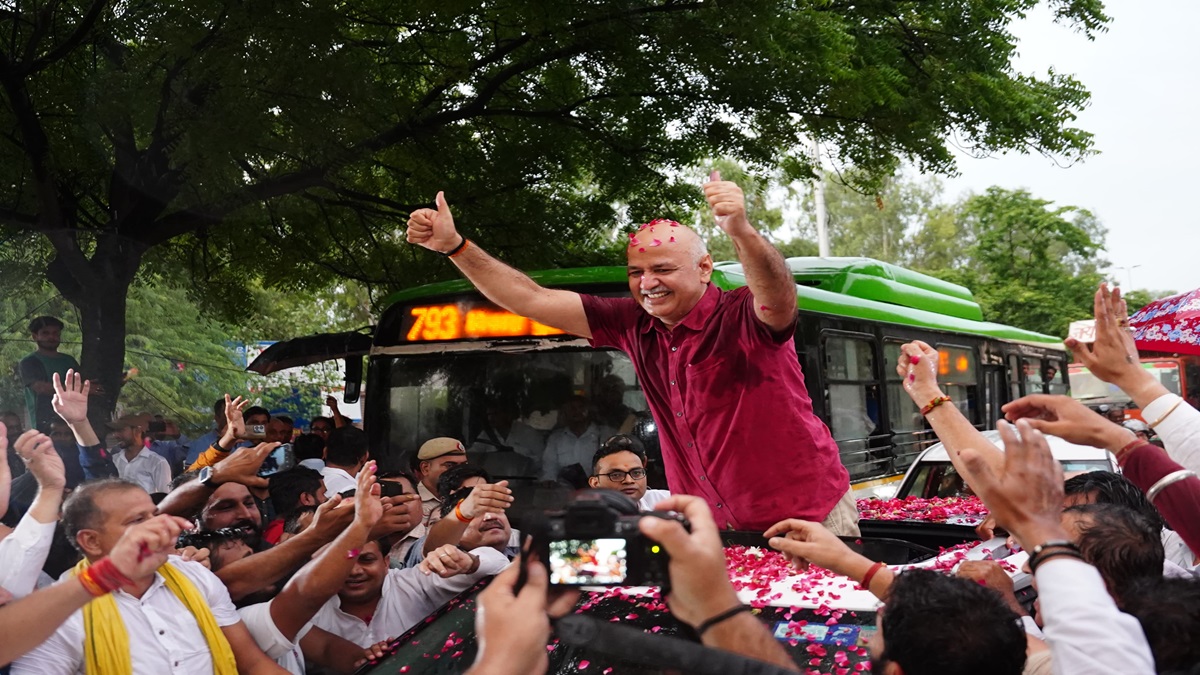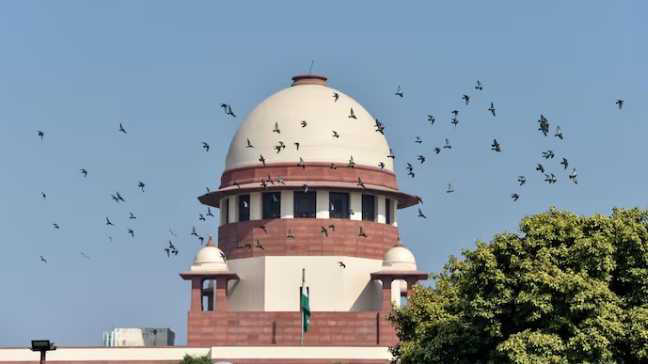Bangladesh court rejected calls to ban the International Society for Krishna Consciousness (ISKCON). This decision came after violence erupted earlier in the week following the arrest of Hindu leader Chinmoy Krishna Das. In the clashes between police and Krishna Das’s supporters, Assistant Prosecutor Saiful Islam Alif was killed. Here’s everything you need to know about the case.
Who Demanded the Ban on ISKCON?
Calls for a ban on ISKCON came after the violence in Chattogram. Additional Attorney General Aneek R Haque and Deputy Attorney General Asad Uddin informed the High Court about three separate cases demanding the ban. Jatiyatabadi Ainjibi Forum, linked to the Bangladesh Nationalist Party (BNP), also held protests and called for a ban. Additionally, leaders of the Anti-Discrimination Students Movement, which has been active in protests against the government, also demanded action against ISKCON.
Background of Chinmoy Krishna Das’s Arrest
Chinmoy Krishna Das, a spokesperson for the Bangladesh Sammilita Sanatani Jagran Jote, was arrested on November 25 at Dhaka’s Hazrat Shahjalal International Airport. He was on his way to Chattogram to attend a rally advocating for the rights of Hindus in Bangladesh. He faced sedition charges and was denied bail by a Chattogram court.

ISKCON’s Response
ISKCON Bangladesh denied any involvement in the violence. Charu Chandra Das Brahmachari, the general secretary of ISKCON Bangladesh, clarified that Chinmoy Krishna Das was expelled from the organization in July for violating its rules. He also emphasized that the organization has never been involved in communal violence or conflict-driven activities.
What Is ISKCON?
ISKCON, also known as the Hare Krishna Movement, was founded in 1966 by AC Bhaktivedanta Swami Prabhupāda in New York City. The movement is based on the Gaudiya-Vaishnava tradition, which follows the teachings of the Bhagavad Gītā and the Bhagavat Purana. ISKCON promotes bhakti yoga, a devotional practice centered on love for Lord Krishna.
ISKCON’s Global Presence
Today, ISKCON has over 650 temples in more than 80 countries. The organization runs vegetarian restaurants, guest houses, and engages in social welfare activities, such as providing relief during emergencies. For example, during the Covid-19 lockdown, ISKCON provided daily meals to 5,500 people in London. Despite its success, ISKCON has faced criticism for allegations of child abuse and corporal punishment within its institutions, particularly in the 1980s.
Indian Government’s Concerns
The Indian government has repeatedly expressed concern over attacks on Hindu temples in Bangladesh. On November 26, India urged the Bangladesh government to ensure the safety of Hindus and other minorities. India also expressed concern over the arrest of Chinmoy Krishna Das, calling for his release and highlighting the need for greater protection for minority groups.
The Bangladesh High Court’s decision not to ban ISKCON is a significant development. It comes amid growing religious tensions in the country and raises questions about the treatment of minority groups, particularly Hindus. The controversy surrounding Chinmoy Krishna Das and ISKCON highlights ongoing political and religious challenges in Bangladesh.




